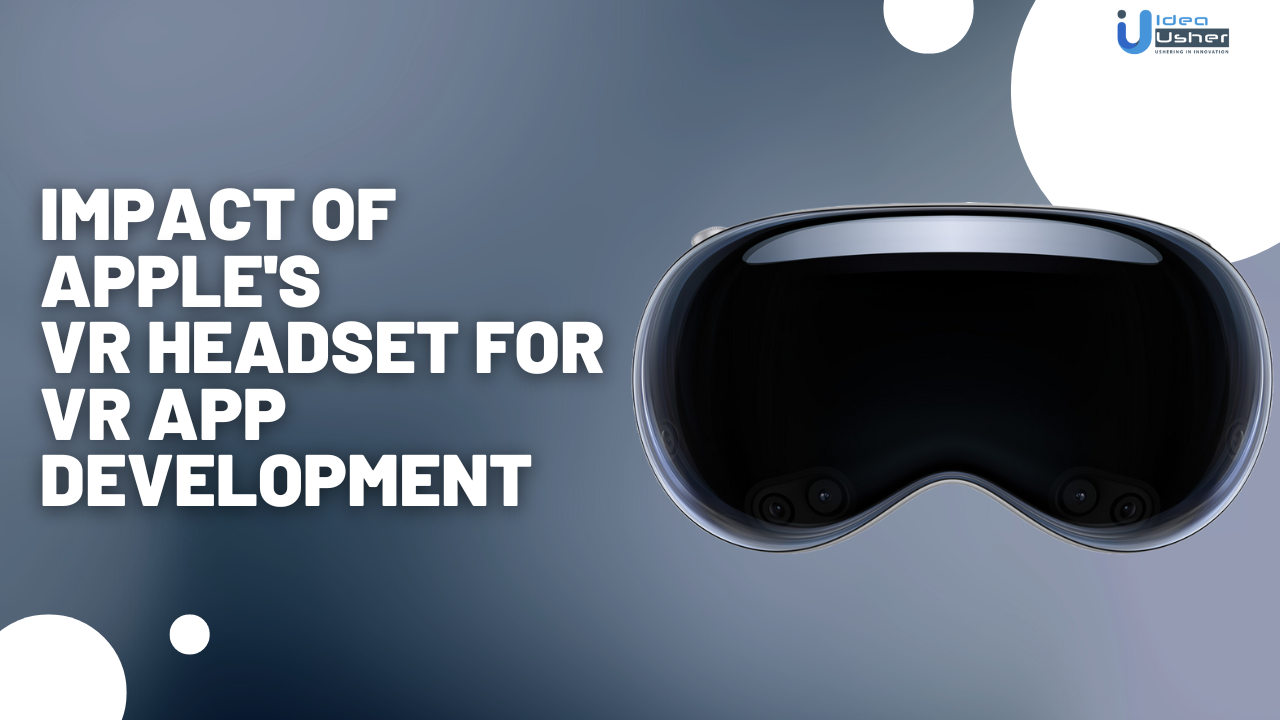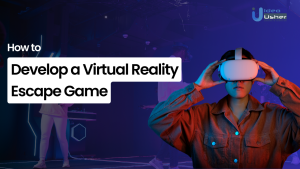Virtual reality (VR) technology has made significant strides in recent years, revolutionizing various industries. Apple, known for its innovation and cutting-edge products, has introduced the Apple Vision Pro, a spatial computing device that promises to take immersive experiences to the next level. In this article, we will explore the benefits of Apple’s $3500 VR headset for VR app development, examining its features, use cases, market challenges, and potential impact on the industry.
The introduction of the Apple Vision Pro at WWDC 2023 has garnered considerable attention and excitement. Packed with advanced technologies, this VR headset aims to provide users with seamless integration of digital content into the physical space, revolutionizing the way we interact with apps and the world around us.
1. Overview of Apple Vision Pro
The Apple Vision Pro offers a host of features and capabilities that set it apart from other VR headsets. Let’s take a closer look at what this device brings to the table:
1.1 Spatial Computing and Integration
At the core of Apple Vision Pro lies its ability to seamlessly integrate digital content into the physical space. By leveraging eye, hand, and voice navigation, users can interact with apps in a natural and intuitive manner. This spatial computing capability allows for a more immersive and realistic experience.
1.2 Navigation and Controls
The device incorporates advanced cameras and sensors, enabling precise tracking of movements and gestures. This ensures accurate and responsive interaction with the virtual environment. Coupled with micro-OLED displays, users can enjoy crystal-clear visuals and an enhanced sense of immersion.
1.3 Immersive Experiences
Apple Vision Pro delivers an immersive theater experience, transporting users to virtual worlds with lifelike visuals and captivating audio. Whether it’s exploring fantastical landscapes, participating in virtual meetings, or watching movies, the device offers an unparalleled level of immersion and engagement.
1.4 Spatial Photos and Videos
Capture the magic of your virtual adventures with Apple Vision Pro’s spatial photo and video capabilities. The device allows users to create and share immersive content, blurring the line between virtual and reality. This opens up new creative possibilities for content creators and storytellers [1].
1.5 VisionOS Spatial Operating System
To power the seamless integration of digital content, Apple Vision Pro comes equipped with the visionOS spatial operating system. This operating system provides a robust platform for app development and enables app extensions, environmental transformation, and connectivity with others. Developers can harness the power of visionOS using tools like Xcode and Reality Composer Pro.
1.6 Development Support and Tools
Apple recognizes the importance of empowering developers to create immersive experiences on the Apple Vision Pro. To this end, the company provides comprehensive development support, including tools like Xcode and Reality Composer Pro. These tools enable developers to unleash their creativity and build cutting-edge VR apps.
2. Price and Market Challenges
While the Apple Vision Pro offers impressive features and capabilities, its high starting price of $3,500 presents a significant barrier for many potential customers [2]. Additionally, the VR market itself faces challenges, with declining shipments and minimal growth predicted. Apple’s foray into the VR market with such a high-priced headset comes at a critical juncture, and its success or failure could have a lasting impact on the industry.
3. Use Cases and Potential
Despite the challenges, Apple envisions multiple use cases for the Vision Pro, aiming to make it a versatile device that appeals to a wide range of users. Let’s explore some of the potential use cases:
3.1 Communication and Video Consumption
The Apple Vision Pro brings new possibilities to communication. With realistic avatars for FaceTime, users can engage in virtual conversations that feel almost lifelike. Additionally, the device offers immersive video experiences, enabling users to watch movies, attend virtual events, and explore interactive multimedia content in an unprecedented way.
3.2 Wellness and Productivity
The Vision Pro incorporates a Wellness app that promotes relaxation, mindfulness, and overall well-being. Users can immerse themselves in soothing environments, engage in guided meditation, or practice virtual yoga. Furthermore, the device has the potential to enhance productivity by offering virtual workspaces, allowing users to organize their tasks and collaborate with colleagues in a spatial computing environment.
3.3 Gaming
Gaming is an area where VR has already made significant strides, and Apple Vision Pro aims to provide a compelling gaming experience. With its advanced tracking capabilities and immersive visuals, the device has the potential to transport gamers into virtual worlds like never before. Developers can create games that take full advantage of the headset’s capabilities, offering a level of immersion and interactivity that traditional gaming platforms cannot match.
4. Importance of Killer Apps and Exclusive Content
The success of the Apple Vision Pro hinges on the availability of killer apps and exclusive content. While the device itself boasts impressive features, it is the content that drives adoption and engagement. Apple needs to work closely with developers to encourage the creation of innovative and immersive experiences that showcase the capabilities of Vision Pro. By offering exclusive content, Apple can differentiate its headset and provide users with unique and compelling experiences that cannot be found elsewhere.
5. Impact on the Market
The introduction of the Apple Vision Pro could have a significant impact on the VR market. While the industry has faced challenges in recent years, Apple’s entry into the market could reinvigorate interest and drive innovation. The success of Vision Pro could pave the way for a resurgence in VR, encouraging other companies to invest in the technology and pushing the boundaries of what is possible.
6. Future Developments
Looking ahead, Apple has plans to expand its VR offerings. The high price of the Vision Pro may limit its accessibility, but the company is already working on a more affordable headset that could reach a broader audience. Additionally, Apple is rumored to be developing sleeker and more compact Apple Glasses, which could represent the next evolution of augmented reality (AR) and VR technology.
7. Key Features and Functionality of Apple’s VR/AR Headset
here are some key features –
7.1 Design and Form Factor
Apple’s VR/AR headset boasts a sleek and ergonomic design, prioritizing user comfort without compromising on functionality. The device incorporates cutting-edge materials and intuitive controls, ensuring a seamless and immersive experience for users.
7.2 Virtual Reality Mode
The VR mode of Apple’s headset enables users to enter a fully digital landscape, immersing themselves in a simulated environment. With high-resolution displays and advanced tracking technology, users can enjoy a truly immersive and interactive experience.
7.3 Mixed Reality Mode
In addition to virtual reality, Apple’s headset introduces mixed reality capabilities, also referred to as extended reality (XR). This mode allows users to overlay digital content onto the real world, creating a unique blend of physical and virtual elements. Users can interact with and manipulate virtual objects within their real surroundings, opening up new possibilities for AR app development.
7.4 Unique Features: Copresence and Exterior Screens
Apple differentiates its VR/AR headset with innovative features such as copresence and exterior screens. The copresence feature enables users to share their viewing experiences with others wearing the same headset, fostering collaborative and shared experiences. Additionally, the inclusion of exterior screens allows those around the wearer to observe a video display of the wearer’s perspective, enhancing social interaction and reducing the isolating nature often associated with VR headsets.
7.5 Mixed Reality Applications:
The headset allows users to run popular Apple applications in mixed reality, combining augmented reality (AR) and virtual reality (VR) elements. Users can interact with apps like Books, Camera, Contacts, Facetime, Mail, Maps, Messages, Music, Notes, Photos, Safari, and more, seamlessly integrating them into their natural space and environment.
7.6 Immersive Video Experience
The Vision Pro headset provides an immersive video experience, allowing users to feel as if they are physically present in the video’s environment. Users can stream movies and watch them on a virtual giant screen in various settings, such as a beach, with immersive spatial audio.
7.7 Third-Party Content Compatibility
The headset is compatible with existing third-party content, ensuring continuity between favorite applications and the Vision Pro. Popular services like Disney Plus will be available on the headset, and Apple encourages developers to create more apps and services for VisionOS, expanding third-party support.
7.8 Extensive App Support
The Vision Pro can run hundreds of thousands of iPad apps from the App Store and top-tier gaming titles from third-party developers. It also has its own unique app store for applications specifically designed for the headset, providing a wide range of software options.
7.9 Work and Productivity Features
The headset doubles as a 4K external monitor for a connected Mac, allowing users to mirror their Mac’s content onto the AR interface. It supports collaborative videoconferencing through Facetime for Vision Pro, enabling users to work with coworkers on projects in a shared virtual environment. The “life-sized” tiles of participants display their video and audio, creating a more natural conversation experience.
8. Real-time Digital Persona
Apple’s advanced machine learning technology reflects the wearer’s face and hand movements in real-time, creating a digital persona for video calls. Participants on the call can see the wearer’s digital representation, enhancing communication and collaboration.
What Does It Mean For VR App Development?
The Apple Vision Pro presents a significant opportunity for VR app development. With its advanced capabilities and spatial computing features, developers can create immersive and interactive experiences that push the boundaries of virtual reality.
Tools for Development
The development process for VR apps on Vision Pro is supported by Apple’s development ecosystem. Developers can utilize the following tools:
1. Xcode
Xcode, Apple’s integrated development environment, provides a robust set of tools and libraries for coding, debugging, and optimizing VR apps.
2. Reality Composer Pro
Reality Composer Pro allows developers to create interactive and visually stunning VR experiences without requiring extensive coding knowledge.
Integration with visionOS
One of the key advantages of developing the Apple Vision Pro is the seamless integration with the visionOS spatial operating system. This operating system provides a powerful foundation for building immersive VR experiences, allowing developers to leverage features like app extension, environmental transformation, and connectivity with other users.
Leveraging Advanced Capabilities
To ensure the success of VR app development on the Vision Pro, Apple encourages developers to consider the unique capabilities and interactions offered by the headset. By harnessing the device’s advanced tracking capabilities, developers can create experiences that accurately capture user movements and gestures, enhancing the sense of immersion.
Visual Potential with micro-OLED Displays
Developers should explore the potential of the Vision Pro’s micro-OLED displays, which offer high-resolution and vibrant visuals. Leveraging these displays, developers can create visually stunning environments and deliver captivating experiences to users.
Future of VR App Development
As the VR market evolves and the Apple Vision Pro gains traction, developers can expect a growing user base and an increased demand for innovative VR applications. By embracing the possibilities of Vision Pro, developers have the opportunity to shape the future of VR app development and deliver compelling experiences that engage and captivate users.
Conclusion
In conclusion, the Apple Vision Pro’s capabilities and the opportunities it presents for VR app development have the potential to revolutionize the industry. With the advanced features of the Vision Pro, developers can create immersive and interactive VR experiences that push the boundaries of virtual reality.
As a company focused on VR app development, Ideausher can leverage Vision Pro’s advanced capabilities, seamless integration with the visionOS spatial operating system, and robust development support to deliver innovative and captivating VR applications. By harnessing the power of tools like Xcode and Reality Composer Pro, Ideausher can create visually stunning AR experiences without extensive coding knowledge.
ideausher can capitalize on the benefits of the Apple Vision Pro for VR app development and make a significant impact in the VR industry. By embracing the opportunities presented by Vision Pro and utilizing their expertise, Ideausher can create immersive and groundbreaking VR applications that captivate users and drive the industry forward.
Work with Ex-MAANG developers to build next-gen apps schedule your consultation now
FAQs
Q1: Can the Apple VR/AR headset be used with existing iPhone apps?
A1: The Apple VR/AR headset is designed to run a dedicated set of applications optimized for the device. However, Apple has indicated that existing iOS apps can be ported to the new headset, enabling developers to enhance their apps with augmented reality features and take advantage of the headset’s capabilities.
Q2: Is the Apple VR/AR headset compatible with other virtual reality platforms?
A2: The Apple VR/AR headset is a standalone device and operates within Apple’s ecosystem. It is not directly compatible with other virtual reality platforms, but developers can create cross-platform experiences by adapting their apps for multiple devices.
Q3: Will the Apple VR/AR headset require a powerful computer to run?
A3: No, the Apple VR/AR headset is a self-contained device that does not require a separate computer to operate. However, it is expected to have high processing power and may require a battery pack to be worn or carried by the user.
Q4: What industries can benefit from Apple’s VR/AR headset?
A4: Apple’s VR/AR headset has applications across various industries. These include gaming and entertainment, education and training, healthcare, remote collaboration, and productivity enhancement. The headset’s mixed reality capabilities offer opportunities for immersive experiences and innovative solutions in these sectors.
Q5: When will the Apple VR/AR headset be available for purchase?
A5: The availability of the Apple VR/AR headset has not been officially announced. However, industry insiders suggest that it could be unveiled at Apple’s developer conference and subsequently released to the market within the next year or two.
























